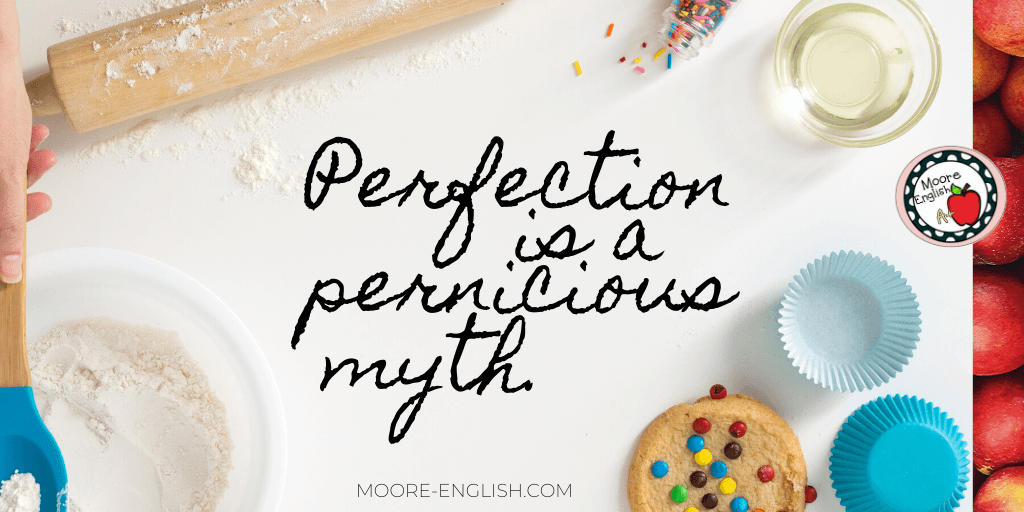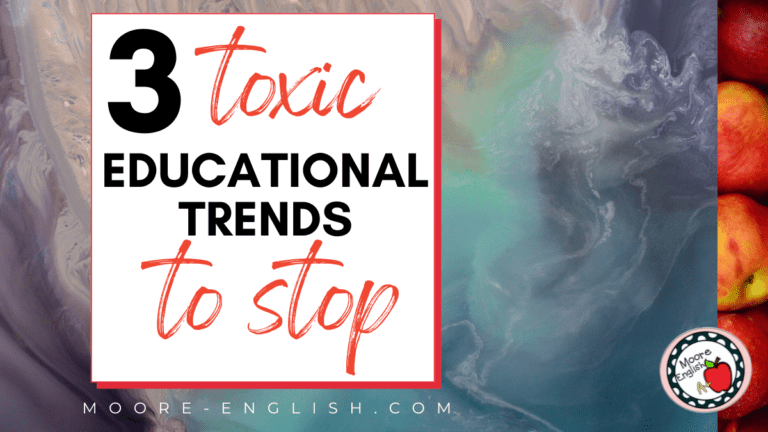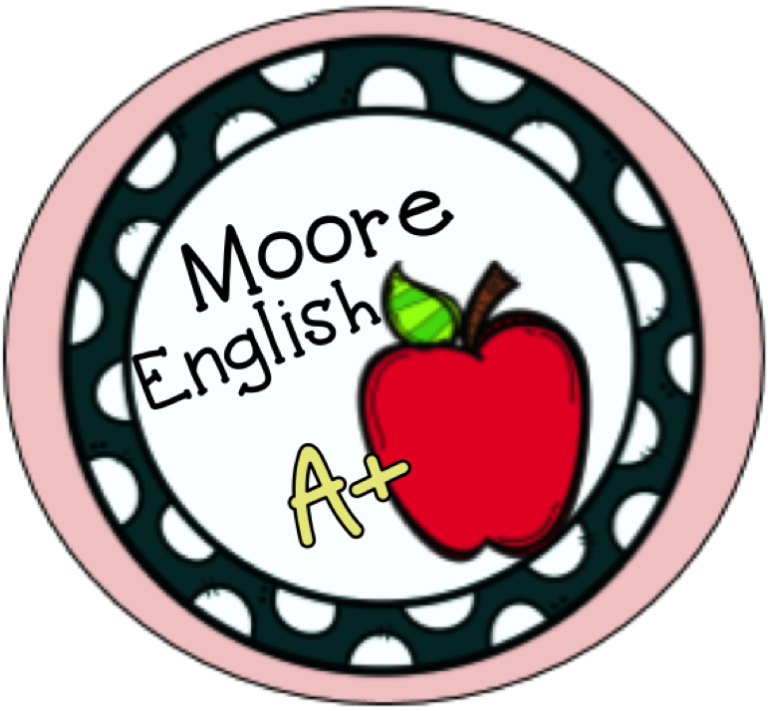February is a tough month for teaching. But it is also a time of great excitement because February marks the beginning of Interview Season. This is the time of the year when veteran teachers announce their retirements. Districts offer incentives for teachers to give early notice. And the HR department begins to post job opportunities. As department chair, I’ve had the chance to participate in countless interviews. Each interview and applicant is different. But the great ones have some characteristics (or ingredients) in common. And because there are great teachers everywhere, I wanted to share a recipe for a great teacher interview.
This post this post may contain affiliate links. Please read the Terms of Use.
Preparing to Cook
First, make sure your application (probably online) is thorough, accurate, and detailed. Your application does not tell the entire story. But it gives interviewers a taste of who you are as a teacher and individual. In the English world, red flags include misspellings or No Excuse grammar errors. However, I get really excited about applicants who have continually worked to grow themselves as life-long learners.
Then, bring your best face to your interview. Look professional and polished. And arrive on time. Sometimes teacher interviews happen at the end of the day. So factor dismissal and the bus line into your travel itinerary.
Interview Ingredients
During your interview, consider these key ingredients:
Enthusiasm: Cooking is scary. So it’s normal to be anxious. But try to show your interviewers that you are excited about joining their school and community. Don’t be afraid to share your passion for your content and your students!
Honesty: Perfection is a pernicious myth. So no one is expecting you to have a perfect track record. In fact, your interviewers are probably going to ask about times when you were not perfect. They are interested in how you respond to challenges and adversity. A teacher who admits her weaknesses and has a plan for building on those skills is far more powerful than a teacher who ignores or hides struggles.
Curiosity: At the end of an interview, the interviewer will likely give you a chance to ask some questions. Ask something! For example, if you have experience with running a writing lab, ask about the possibility of such a project. If you want to coach volleyball, ask about the program. If you value classroom technology, ask some questions about the building’s technology initiative. This is an opportunity for you to make sure that this is the right building for you. In other words, make sure you and the building have matching or complementary recipes in mind.
Intangible Interview Ingredients
Willingness: As teachers, we all have an “ideal” school in mind. And my hope is that you do eventually find your forever school. However, there’s a good chance that you will interview at a school that has some unfamiliar policies or procedures. In these situations, a teacher willing to try something new is compelling. Therefore, a teacher invested in growing herself and her students is powerful! In other words, communicate your willingness to try new approaches.
Integrity: However, while teachers interested in trying new approaches are important, integrity is also a valuable interview ingredient. Don’t feel like you have to sacrifice any of your core beliefs in order to earn a job. In fact, if a school expects you to change everything you believe as a teacher (your #teachertruth), then that school may not be the right fit for you. Sure, interviewers are looking for applicants who bring the right ingredients. But applicants also have to be looking for schools that provide the ideal environment for “cooking.”
Expertise: At one point or another, every teacher you admire walked into a job interview as a novice. So in terms of expertise, a new teacher may not have the experience of a veteran. Nevertheless, in an interview situation, show off your content and instructional knowledge. Even if you have limited experience, you should stay up-to-date with the latest in best practices. In the “kitchen,” a mind at work is a valuable ingredient. So don’t be afraid to show how carefully you think through professional and instructional decisions.
Bonus Ingredients
Of course, when you are cooking, there are often opportunities to include bonus ingredients. These seasonings and spices can often elevate a dish. The same is also true during a teacher interview. Bonus ingredients are unique to each applicant. So it’s hard to predict what special item each applicant will offer. Sometimes teachers have a particularly noteworthy experience such as teaching abroad or serving in the armed forces. Other times teachers have achieved high honors such as winning grants or publishing their work. Still other teachers have an aptitude with technology or library science. Whatever special ingredients you carry, share them during your interview. These can be the details that separate you from another candidate!
What other ingredients would you bring for a great interview? Let us know in the comments!
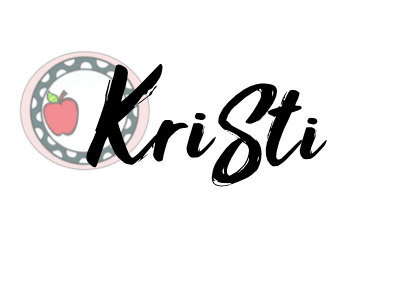
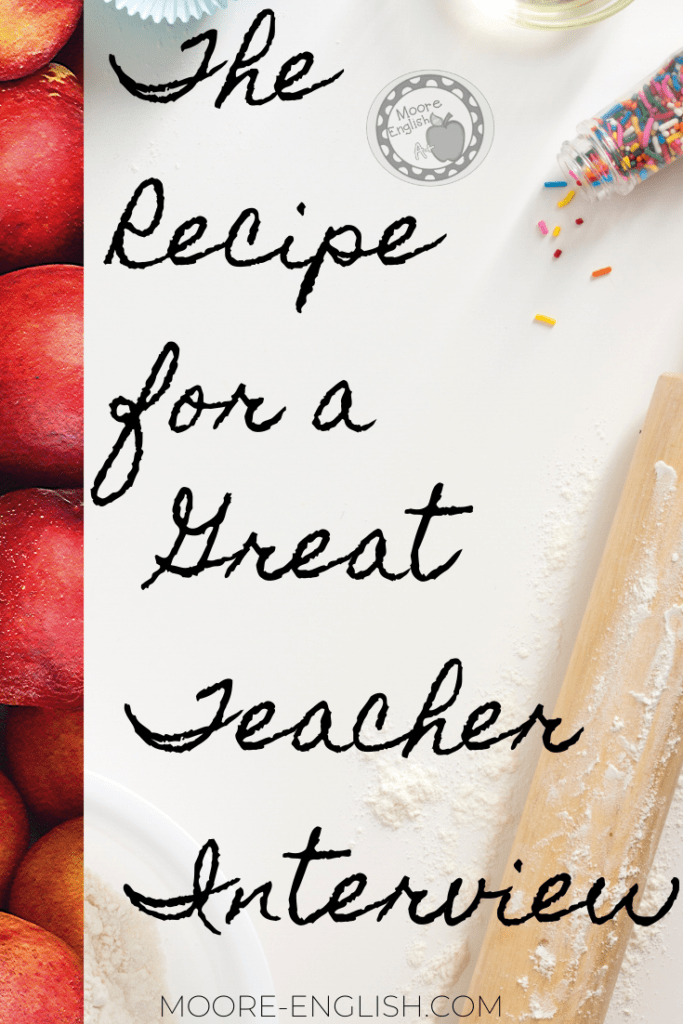
Images from Ivory Mix.

